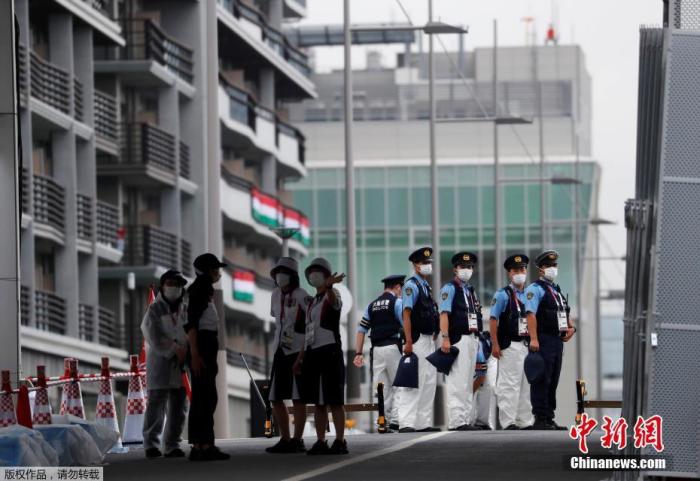Chinanews, July 17th, a comprehensive report, the latest public opinion survey of the Japan Broadcasting Association (NHK) shows that the approval rate of the cabinet led by Japanese Prime Minister Yoshihide Suga fell to 33%, the lowest since its establishment in September 2020.
According to Reuters analysis, under the challenge of a surge in Japan's new crown cases, a setback in vaccination, and the lack of public support for the Tokyo Olympics, Yoshihide Suga appears to be dwarfed and in danger of becoming the next "short-lived prime minister."
Data map: Japanese Prime Minister Yoshihide Suga.
Multiple problems plague Yoshihide Suga,
Red light on the political outlook
According to reports, when Yoshihide Suga took office in September 2020, the approval rating was about 70%, and it has plummeted to just over 30%.
Traditionally, this is considered a dangerous line for Japanese leaders.
The former Prime Minister Shinzo Abe resigned in 2020 on the grounds of poor health, ending his nearly eight-year term and becoming Japan's longest-term prime minister.
Prior to this, Japan had experienced six prime ministers in a few years, including Shinzo Abe, who only served as the first prime minister of one year.
The report pointed out that after taking office, Yoshihide Suga's dream is to control the new crown epidemic, successfully host the Tokyo Olympics, and then hold a general election.
However, the recent surge in new crown cases caused Tokyo to enter a state of emergency for the fourth time, and forced the Olympic Games organizers to decide to almost completely ban spectators from entering the arena. Their dreams have been shattered.
"He didn't do a good job in handling party affairs and policies. No one likes to let him be in power." Steven Reed, an emeritus professor at Central University, said, "They just haven't found a replacement yet."
In addition, Japan’s vaccination schedule was slow at first, but now it is facing a supply bottleneck, which makes the public even more dissatisfied.
The latest polls show that 71% of people believe that the vaccination progress is very slow.
On July 13, Japan’s Tokyo Olympic Athletes Village officially opened to welcome athletes from all over the world.
Affected by the new crown epidemic, no village entrance ceremony and other celebrations were held that day.
The picture shows a police officer at the entrance of Athletes Village.
The Liberal Democratic Party is still looking for a successor?
Party
within disagreements have deepened
For Yoshihide Suga's Liberal Democratic Party, his biggest failure was his failure to win the election.
The Liberal Democratic Party lost three parliamentary by-elections in April. This month, the party and its allies did not win a majority of seats in the Tokyo Metropolitan Assembly.
The Liberal Democratic Party won far less seats than expected in this election, which is regarded as the vane of the national elections.
"The consensus within the Liberal Democratic Party was that unless the Liberal Democratic Party (in the Tokyo metropolitan elections) has a major defeat, Yoshihide Suga will serve as prime minister until next spring." said a senior official with a deep understanding of the party.
Now, "people from the party are considering how to replace him," said the official, who asked not to be named.
However, none of the current heavyweights of the Liberal Democratic Party have publicly requested the replacement of Yoshihide Suga.
Analysis believes that Yoshihide Suga won the leadership of the Liberal Democratic Party after gaining support from major factions.
But he lacks a solid foundation of his own, and since he took office, the differences within the party have deepened.
It is not easy to replace an incumbent prime minister, and the lack of an obvious successor makes it even more difficult.
Tobias Harris, a senior researcher at the Center for American Progress, a think tank based in Washington, said, "If it is obvious who will replace him, his troubles may be greater, but who will the party gather around?"
According to the Japan Jiji News Agency’s announcement of the prime minister’s candidates in public opinion, the one with the highest approval rate is Shigeru Ishige, former secretary of the Liberal Democratic Party.
Others according to the support rate are Taro Kono, Minister of Administrative Reform, Shinjiro Koizumi, Minister of the Environment, and Shinzo Abe, the former Prime Minister.

